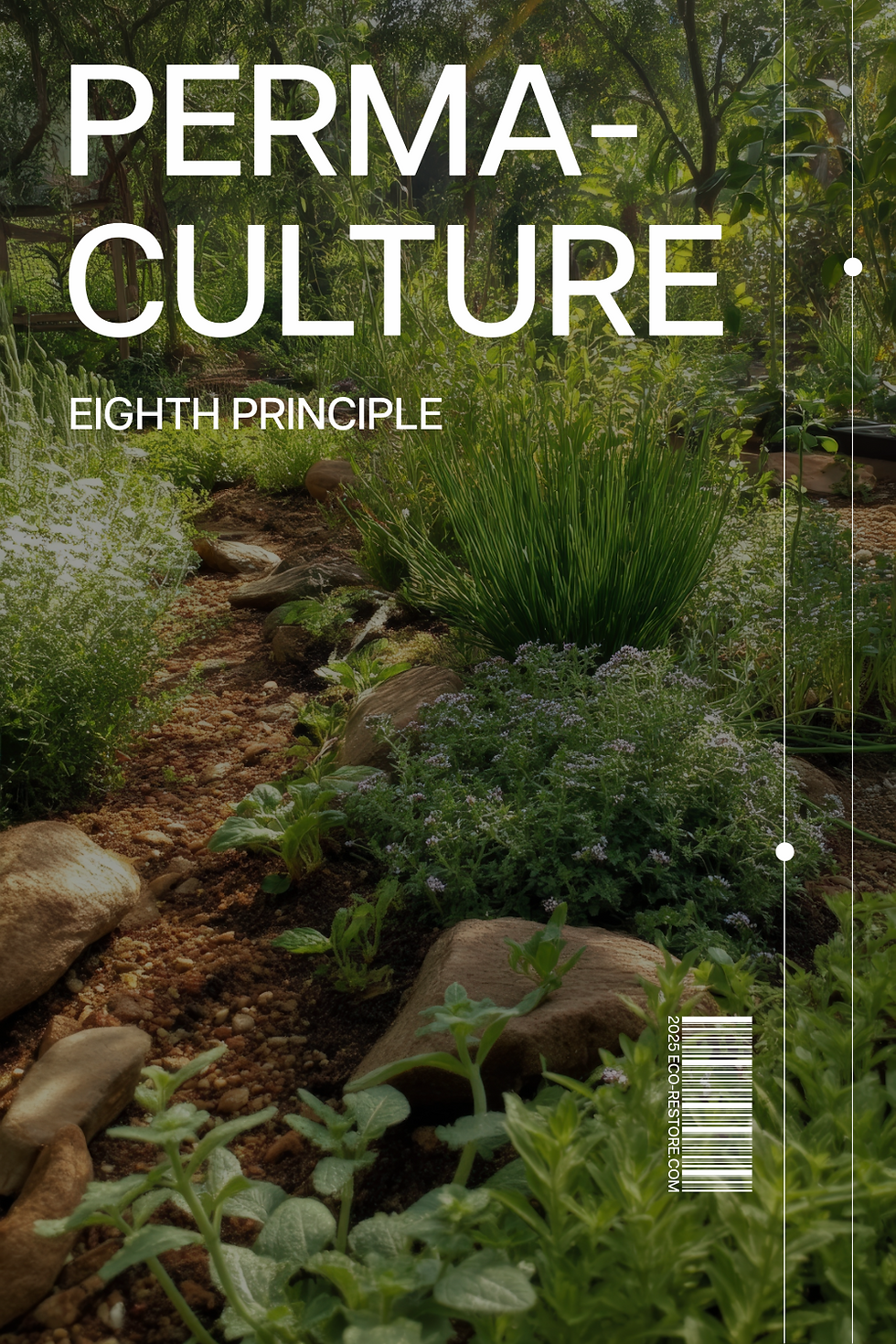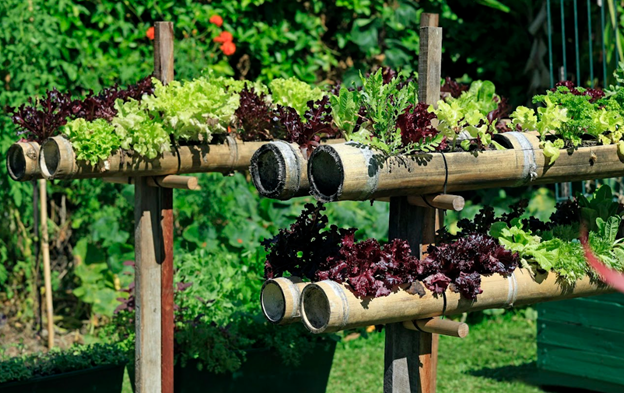Rooted in Relationship
- info630005
- Aug 3, 2025
- 3 min read
By Sara Jo Kinslow Eco-Restore Consulting and Design sj@eco-restore.com
Special for Transition Fidalgo
August on Fidalgo Island carries a rhythm all its own. The salt-kissed breeze from the bays, the filtered sunlight through towering, long-lived cedars and madrones, and the chorus of bees and birds create a living backdrop for late-summer abundance. Here, the landscape feels intimate—tangled forests edge into gardens, and the sea is never far from view.
In this unique setting, the permaculture principle “Integrate Rather Than Segregate” finds fertile ground. It reminds us that gardening is not just about placing plants in soil—it's about placing them in relation to one another. And that’s something Fidalgo gardeners know by heart: this island, after all, thrives on connection—between land and sea, between neighbors, between native and cultivated species.

A Garden in Relationship
To garden on Fidalgo is to work with microclimates, forest edges, salty breezes, and sometimes shallow soils. But it’s also to enjoy the beauty of community-supported spaces, native pollinators, and a growing awareness of stewardship. The more we integrate plants, structures, and wildlife thoughtfully, the more abundant and resilient our gardens become.
Ask yourself: Which parts of my garden feel isolated? Where is connection already flourishing?
Integration doesn’t mean chaos—it means designing for synergy. A hedge that feeds birds can also block wind or a pesky view. A chicken run under fruit trees can manage pests and fertilize the soil. Herbs along a garden path can both flavor your meals and deter deer. When you weave these functions together, the result is greater than the sum of its parts.

Island-Specific Benefits of Integration
Resilient Edges and Microclimates
Many Fidalgo gardens back up to forest or bluff. These edge zones are perfect places to plant guilds—clusters of trees, shrubs, herbs, and groundcovers that support one another and shelter wildlife. Layering deep-rooted perennials with native understory plants like salal or red-flowering currant can also stabilize slopes and improve habitat.
Salt-Tolerant Companions
Living near the shore means adapting to salty air and occasional spray. Integrating salt-tolerant herbs like rosemary and oregano into beds near the coast helps anchor soil and adds resilience without sacrificing beauty or function.
Community Connections
Integration isn’t just about plants. On Fidalgo, many gardeners share tools, swap seeds, or co-manage shared green spaces. These human relationships are part of the garden’s system, too—strengthening knowledge, reducing waste, and increasing joy.
Where in your garden could you invite more mutual support? Could a shared compost system, a neighborhood chicken flock, or a pollinator pathway enhance not just your garden, but the whole street?
________________________________________________________________________
How Eco-Restore Can Support Fidalgo Gardeners

At Eco-Restore, we’re deeply familiar with the climate, ecology, and community spirit of Fidalgo Island. Whether you garden in old town Anacortes, Dewey Beach, or deeper inland near Heart Lake, we can help you cultivate an integrated system that suits your specific site.
Here’s how we can help:
Site-Specific Garden Design: We walk your land with you, identifying how to work with the landscape—windbreaks, slope, soil texture, forest edges, and more.
Integrated Planting Plans: From coastal hedgerows to backyard orchards, we help place elements where they support one another—and you.
Ongoing Support: We offer seasonal coaching, soil assessments, and custom mulch maps to keep your garden thriving with minimal input.
This is the essence of permaculture: designing with intention, not just for productivity, but for joy, ease, and long-term stewardship.
This August, let your garden grow in a deeper relationship—to place, to purpose, and to the wider web of life. Fidalgo Island is rich in natural abundance, and your garden can mirror that richness when designed with connection in mind.
Reach out for a free discovery call at eco-restore.com Let Eco-Restore help you cultivate a garden that is truly rooted in relationship.



Comments